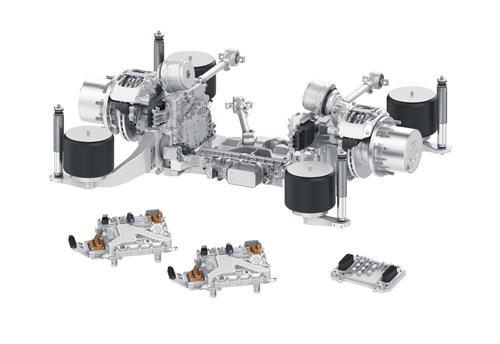Ferrari reveals 488 Pista with racing-derived 711bhp V8
The best supercar in the world just got lighter, punchier and even more focused; it's the most powerful V8 Ferrari yet produced.
The new Ferrari 488 Pista dispatches the benchmark 0-62mph/0-100kph as quickly as the Italian brand’s halo model, the LaFerrari.
The 488 Pista – a more powerful, lighter variant of the 488 GTB, just as the 458 Speciale was to the 458 – covers 0-62mph in 2.85sec, while the official quoted figure for the LaFerrari is “under 3.0sec”.
The model uses the most powerful V8 in Ferrari’s history and is described as an “extreme evolution” of the turbo unit that won International Engine of the Year in both 2016 and 2017.
The 3.9-litre twin-turbo engine produces 711bhp at 8000rpm and 568lb ft of torque at 3000rpm. Top speed is up to 211mph. Performance figures from its key rival, the range-topping Porsche 911 GT2 RS, are near-identical, achieving 0-62mph in 2.8sec and a top speed of 211mph.
Ferrari claims the 488 Pista is “a significant step forward” from the previous special series in terms of sporty dynamics and the level of technology carried over from racing. The name – meaning ‘track’ in English – is a nod to the brand’s motorsport heritage.
The engine, vehicle dynamics, weight saving and aerodynamics are all derived from the 488 GTE and 488 Challenge race cars. Ferrari said the result is a car that offers track-like performance on the road and on circuits.
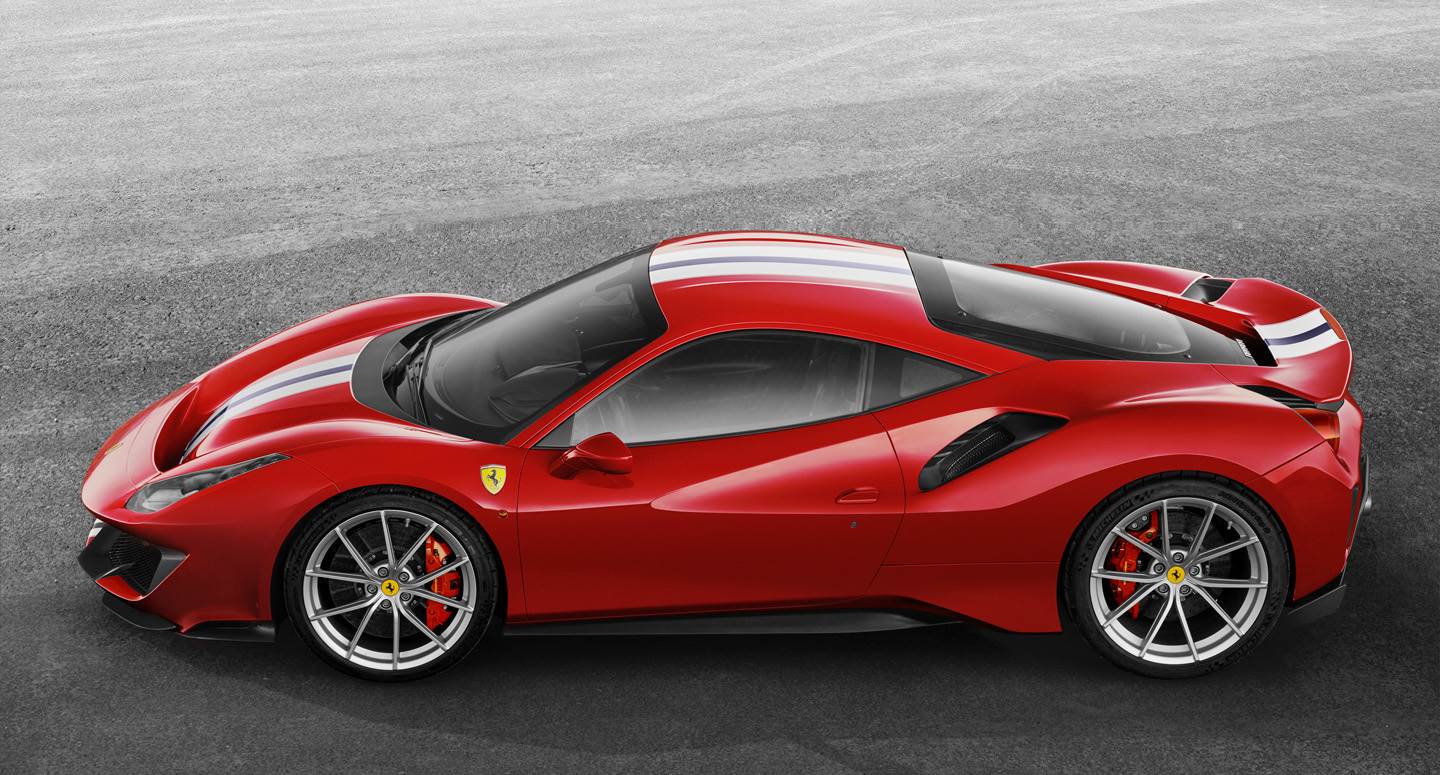
The dry weight is 90kg less than a standard 488 GTB’s, at 1280kg. In addition, an extra 49bhp in engine power has ensured this is Ferrari’s most powerful V8 yet.
The weight decrease comes from features used on the 488 Challenge. These include Inconel exhaust manifolds and lightweight crankshaft and flywheel, plus titanium con rods and carbonfibre intake plenums.
The 488 Challenge also supplies turbos with integrated rev sensors, while the air intake line has been moved from the flanks to the rear spoiler to help achieve better airflow.
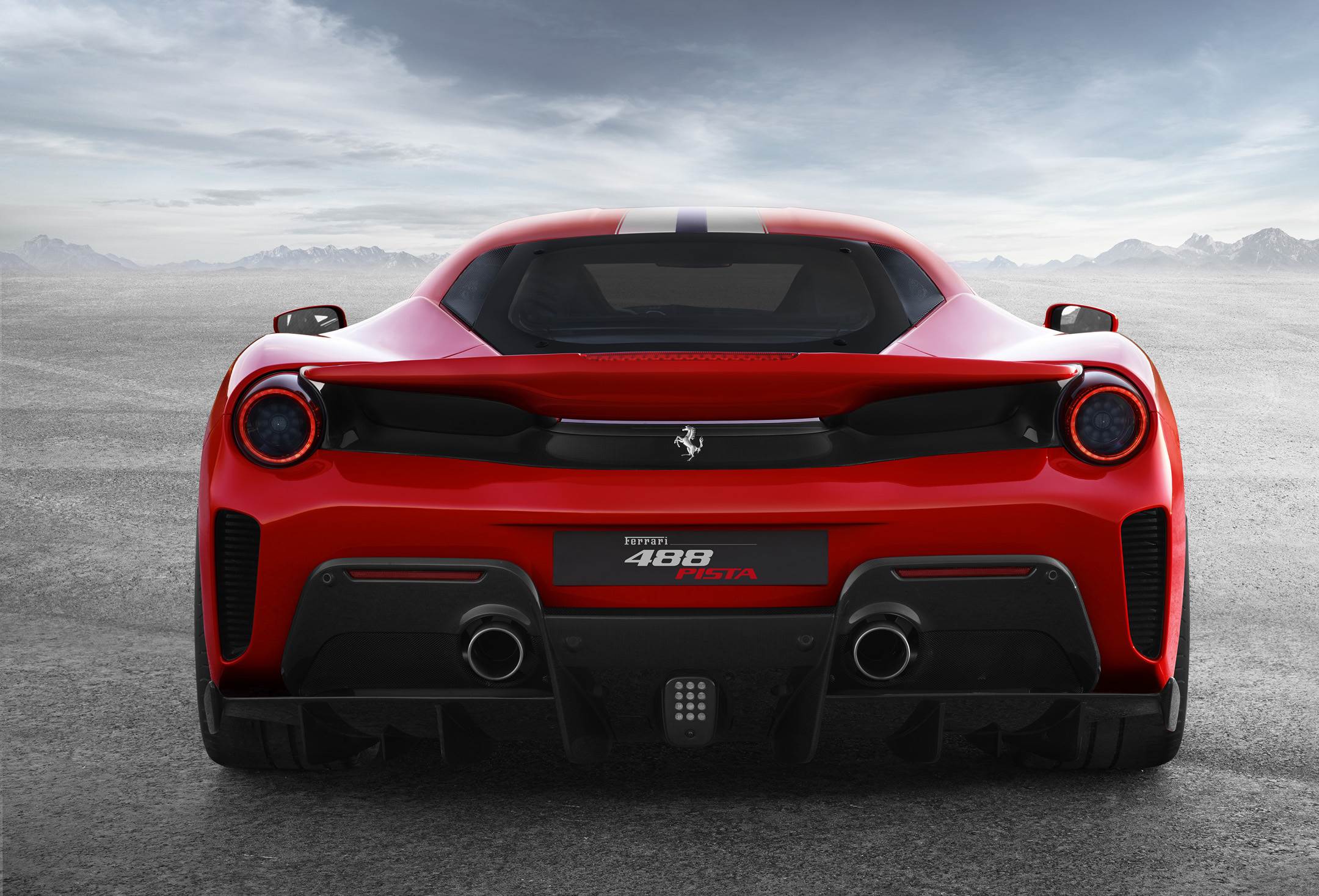
Torque is higher than the 488 GTB’s at all engine speeds, and the quality and intensity of the engine sound, Ferrari says, are higher than the 488 GTB in all gears and at all revs.
Overall, there is a 20% improvement in downforce, according to Ferrari. The Pista has an F1-inspired S-duct and redesigned front and rear diffusers from the 488 GTE.
The Pista also introduces the Ferrari Dynamic Enhancer, which is a world first. It uses Ferrari software to adjust the brake pressure at the calipers, benefiting handling in corners.
Ferrari has also updated its Slideslip Angle Control system, first seen on the 458 Speciale, which offers advanced stability control akin to a drift mode. The car uses Ferrari’s magnetorheological suspension set-up.The Pista will be available with 20in carbonfibre wheel rims, a first for Ferrari. Other carbonfibre parts include the engine cover, bumpers and rear spoiler.
Order books for the 488 Pista will open after the car’s official debut at the Geneva show in March. It is expected to cost from £215,000.
The arrival of the 488 Pista, which has been rumoured for many weeks, follows in the footsteps of models such as the 458 Speciale, 430 Scuderia and 360 Stradale, all considered the halo variants for their respective models. None was a limited-production model but was typically in production for only two or three years.
RELATED ARTICLES
Lamborghini unveils Urus SE ahead of Auto China 2024
Electric-only range of 60km helps reduce emissions by 80%.
ZF to display next-gen e-axle for low-floor city buses at Busworld Turkiye 2024
The AxTrax 2 LF is available with a continuous output of up to 360 kW and a peak torque of up to 37,300 Nm.
Daimler Buses and BMZ Poland to develop next-gen NMC4 electric bus batteries
The new battery generation NMC4 – succeeding the current NMC3 technology – will combine high energy density, resulting i...





 22 Feb 2018
22 Feb 2018
 5680 Views
5680 Views



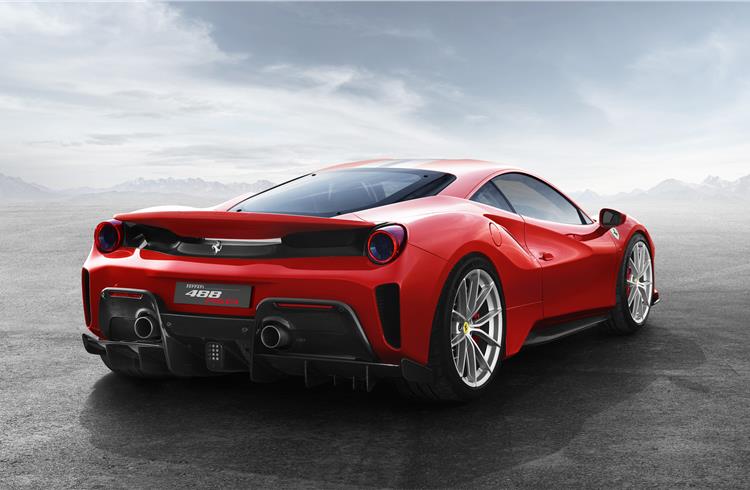
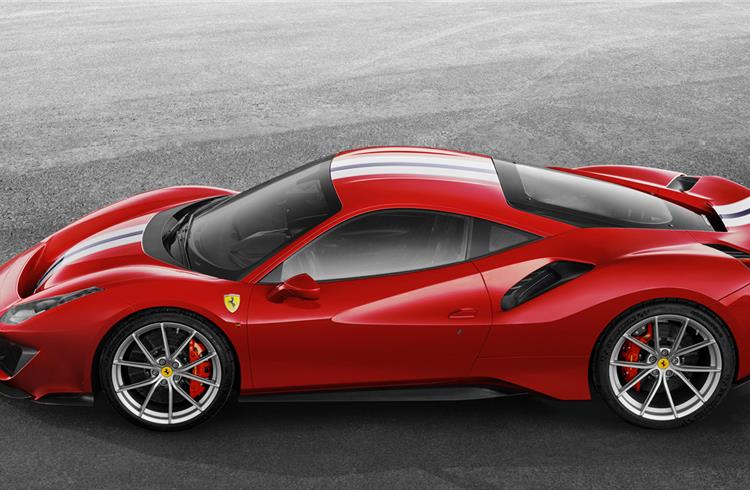
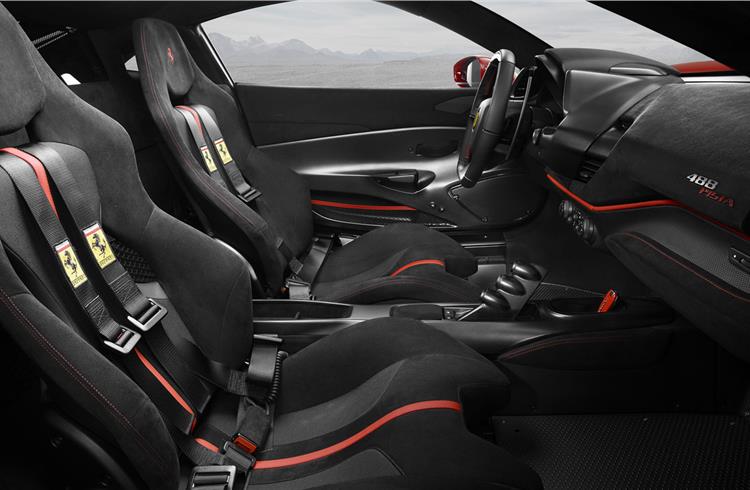
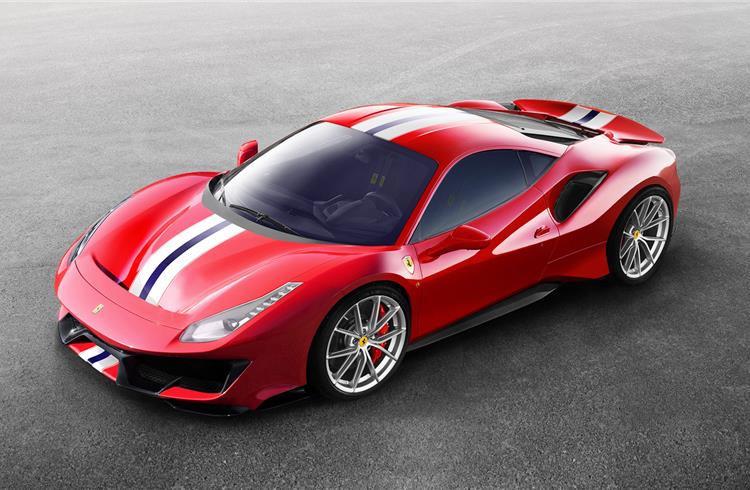
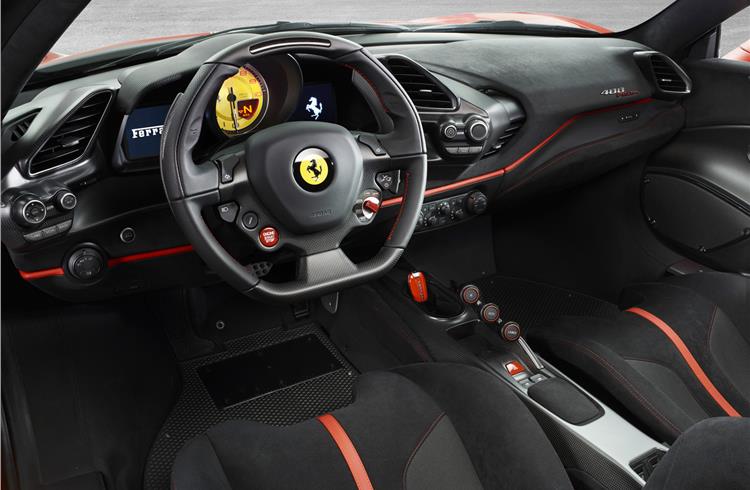
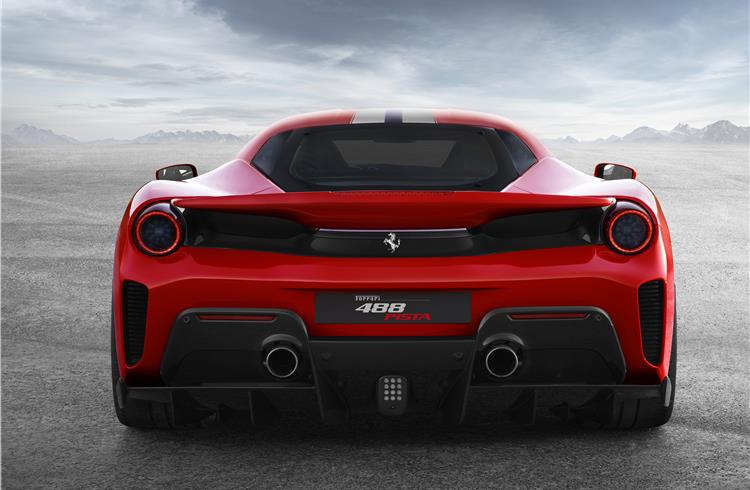

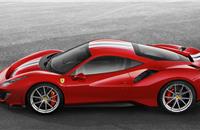
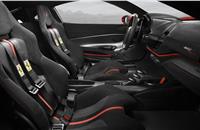
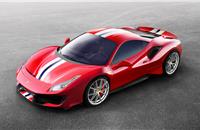



 Autocar Pro News Desk
Autocar Pro News Desk

